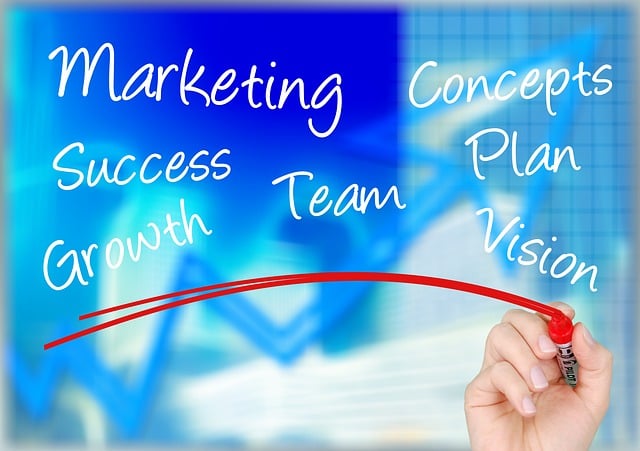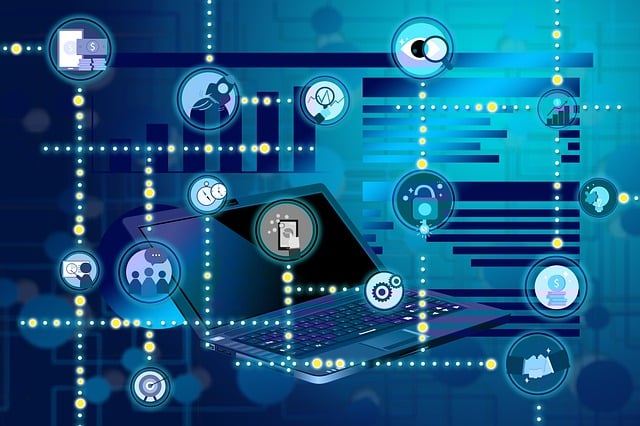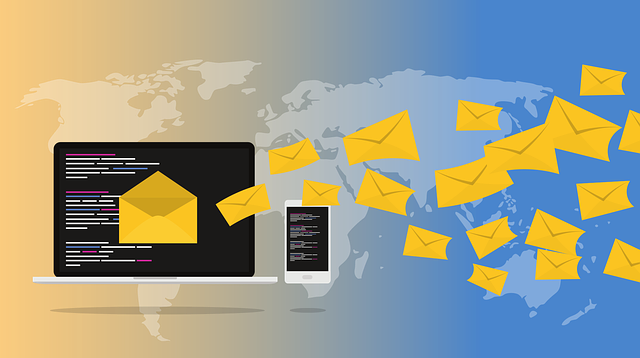AI automation is revolutionizing talent acquisition by analyzing large candidate data sets through machine learning, expediting and enhancing recruitment processes. It offers businesses cost-effective solutions similar to AI food cost control software in restaurants, streamlining operations and making unbiased recommendations for better workforce planning. However, challenges include data privacy, security concerns, and addressing biases in training data. Implementing AI strategically for candidate sourcing, screening with chatbots, and predictive analytics based on historical data ensures proactive talent planning, reducing hiring cycle resources while maintaining enhanced precision and efficiency.
“In today’s digital age, Artificial Intelligence (AI) is transforming various industries, and talent acquisition is no exception. This article explores the innovative world of AI business talent acquisition automation, a game-changer for HR professionals. We’ll delve into how AI streamlines recruitment processes, from candidate sourcing to selection, while ensuring fair and unbiased hiring practices. By understanding its benefits and challenges, businesses can implement effective strategies to enhance their talent pool using AI tools, such as food cost control software, revolutionizing human resources.”
- Understanding AI Automation in Talent Acquisition
- Benefits and Challenges of AI for Business Hiring
- Strategies for Effective Implementation of AI in Talent Acquisition
Understanding AI Automation in Talent Acquisition

AI automation in talent acquisition is transforming the way businesses find and hire top talent. By leveraging machine learning algorithms, AI software can analyze large volumes of candidate data, from resumes to social media profiles, to identify the most suitable applicants for specific roles. This not only speeds up the recruitment process but also improves its accuracy by minimizing human bias.
In terms of benefits, AI automation offers cost-effective solutions that can significantly reduce hiring costs associated with traditional methods. Similar to how AI food cost control software optimizes expenses in restaurants, AI talent acquisition tools streamline operations and make intelligent recommendations based on predefined criteria. This results in better workforce planning and ensures businesses secure the best candidates while making informed decisions.
Benefits and Challenges of AI for Business Hiring

The integration of AI in talent acquisition has revolutionized business hiring processes, offering numerous advantages. One significant benefit is enhanced efficiency; AI algorithms can sift through vast pools of resumes and candidate data, identifying top talent swiftly. This automation streamlines the initial screening phase, allowing recruiters to focus on more complex tasks. Moreover, AI ensures consistent and unbiased hiring practices by removing human preconceptions, fostering diversity and fairness in the workplace. With its ability to analyze patterns and predict successful candidates, AI can improve overall hiring accuracy.
However, challenges exist when implementing AI for business hiring. Data privacy and security concerns are paramount; handling sensitive candidate information requires robust measures to prevent breaches. Additionally, while AI excels at initial screening, it may struggle with nuanced aspects of assessment like cultural fit or creative thinking. Training data biases can also lead to unfair outcomes if not carefully managed. Organizations must invest in high-quality training data and continuously monitor AI performance to ensure equitable and effective talent acquisition.
Strategies for Effective Implementation of AI in Talent Acquisition

Implementing AI in talent acquisition requires a strategic approach to ensure its effectiveness and maximize returns on investment. One key strategy is to leverage AI for candidate sourcing and screening, where algorithms can analyze vast amounts of data from resumes, social media profiles, and other sources to identify top talent swiftly. This enables recruiters to focus more on engaging with promising candidates rather than sifting through endless applications.
Additionally, AI-powered chatbots and virtual assistants can handle initial candidate interactions, providing quick responses to common queries and screening questions. This not only improves the candidate experience but also reduces the time and resources required for each hiring cycle. Just as effective is using AI for predictive analytics, which can forecast future staffing needs based on historical data and market trends, ensuring proactive talent planning. Employing these strategies, organizations can streamline their recruitment processes with enhanced precision and efficiency, akin to how AI food cost control software optimizes operational costs in the culinary sector.
AI automation in talent acquisition is transforming the way businesses recruit top talent, offering significant advantages such as speedier hiring processes and enhanced candidate experience. However, organizations must also address challenges like bias mitigation and ensuring ethical use of AI. By implementing effective strategies that include data-driven decision making, continuous learning, and collaboration between humans and machines, companies can harness the power of AI to optimize their talent acquisition efforts, much like a sophisticated AI food cost control software optimizes operations in the culinary industry.
